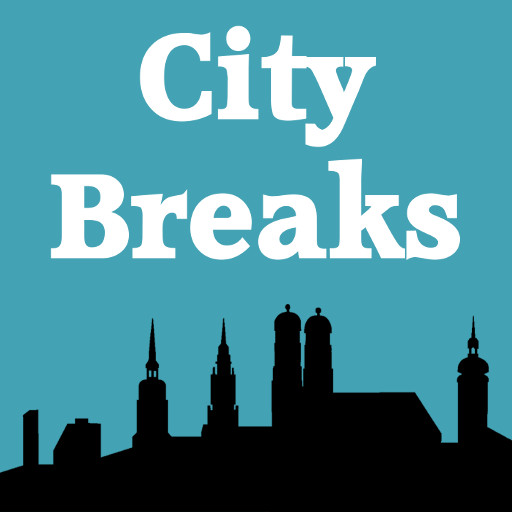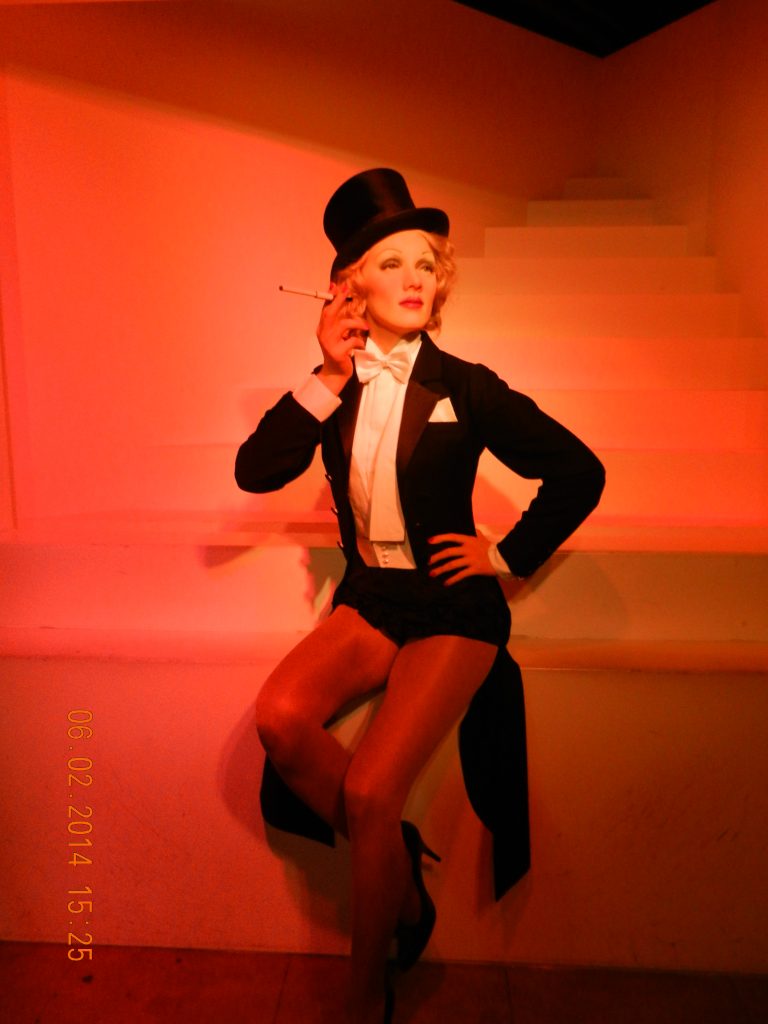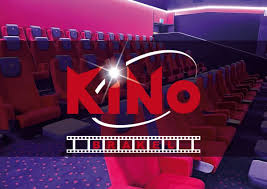Berlin and cinema have long been linked and there’s lots for film fans to explore in the city: a film museum and a working film studio which you can visit, a host of cinemas and – every February – one of Europe’s premier film festivals, the Berlinale. This post will explain all, and also suggest some ideas for German films, set in Berlin and available with English subtitles, that you’re likely to enjoy watching.
The Museum for Film and Television
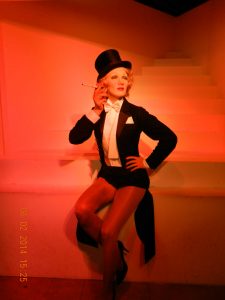
At the Museum for Film and Television, known in German as the Deutsche Kinemathek, in the Potsdamer Platz, you can follow 100 years of German cinema history, from the early silent films to the present day. That includes iconic works such as Fritz Lang’s Metropolis, often billed as the world’s first science fiction film. There’s a big section on Germany’s most iconic film star, Marlene Dietrich, where you can learn about her life and work, drool over her costumes – think silk, sequins and velvet – and watch clips from films like The Blue Angel which made her famous. Also covered is the work of Leni Riefenstahl, infamous for the propaganda films she made for Hitler, yet also famous for her ground-breaking techniques in shooting and editing films.
Perhaps of less interest to the English-speaker is the section on television. But if you stick with it, you will get the chance to see iconic moments from recent German history captured on film: the West Germans winning the football World Cup in 1954 and the fall of the Berlin Wall for example.
The FilmPark Babelsberg
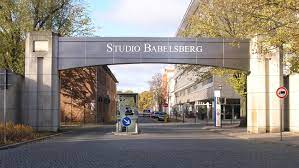
Ok, so the Filmpark Babelsberg is not in central Berlin, but rather in Potsdam. You can get straight there in about 25 minutes by taking a train from Berlin’s main station to a station called Medienstadt Babelsberg, (Babelsberg Media City in English). NB It is only open to visitors in the summer season, for example from April 5th until November 5th in 2022.
It’s ideal for film fans because there’s a working film studio which lets you get behind the scenes and see how it’s all done. You can, for example, see set painters and costume designers at work, watch stuntmen try out their tricks and even visit a mock studio and try being a tv presenter yourself. There’s an in-house cinema – of course! – where you can see clips from films made at the Babelesberg studios.
The Berlin Film Festival
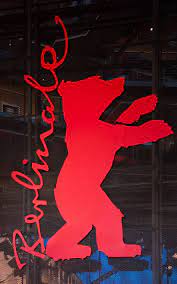
This ten-day extravaganza, known in German as the Berlinale, is one of Europe’s Big 3 Film festivals, alongside Cannes and Venice. It happens every year in February, and some 400 films are shown, at Potsdamer Platz and in other venues all over the city. That includes everywhere from iconic historic cinemas like the Zoo Palast, to the 1960s built East German style Kino International, not forgetting ultra-modern venues like the 19 screen CinemaxX (not a typo!) at Potsdamer Platz and the cube-shaped steel and glass Cubix at Alexanderplatz.
Just to be in Berlin while it’s happening can be exciting – big outdoor screens abound, stars arrive at their premieres, and the air of glitzy excitement has come a long way since 1951 when the first festival opened with Hitchcock’s Rebecca. There are last-minute tickets to be had at many venues, via the festival website or just by joining a queue. While you wait you can discuss who’ll win the big prizes – the Golden and Silver Bear Awards – or, if queueing is not your thing, just mingle with the crowds or wander down the Boulevard der Stars, the long ‘red carpet’ which runs from the Sony Centre to the Potsdamer Platz and commemorates the stars from 120 years of German-speaking film and television history.
Find the programme for the next Berlinale here
Berlin Cinemas
The Visit Berlin website section on cinemas is the best, most up-to-date way to find the cinemas you want to visit. There’s lots of choice, as they explain: ‘Berlin is a cinephile’s dream city thanks to its countless multiplexes, art house cinemas and independent spaces that offer cinema goers everything from blockbusters to classics, silent films, retrospectives and foreign language films’. Here’s what we most recommend.
CinemaxX
The CinemaxX at Potsdamer Platz is just massive – 19 cinema halls where you can see all the big blockbusters and enjoy state-pf-the-art cinema technology.
The Odeon
The Odeon shows lots of English-language films, so is a great bet for those who don’t speak German.
The Kulturbrauerei Cinema
A listed brick building, formerly a brewery, the Kulturbrauerei has been converted to an 8 screen multiplex cinema and it’s in a trendy area, so after the film you can head out for some nightlife.
Open Air Cinema at Spandau
An open-air cinema at Spandau In the inner courtyard of the Spandau City Library, the programme is a mix of current films and old favourites and you can enjoy them while sitting amongst the cherry trees … unless it rains, in which case the screenings will be indoors in the nearby Kulturhaus.
German Films to Watch
Why not? There are lots of German films which are set in Berlin and have English subtitles, so it’s a great way to get a homegrown view of Berlin and its history and culture. We’ve already mentioned Metropolis and The Blue Angel. A few more we highly recommend are:
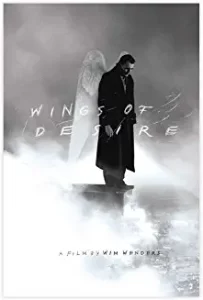 Wings of Desire 1985
Wings of Desire 1985
Set in a divided Berlin, where two angels glide over the city, providing hope to all, until one falls in love with a lonely earthling. Fantastic shots of Berlin, showing the divided city from the air and location shots at iconic venues like the Victory Column, the Potsdamer Platz and the Berlin Wall.
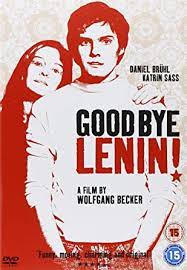 Good Bye, Lenin 2003
Good Bye, Lenin 2003
Set in October 1989, right before the fall of the Berlin Wall, showing a family divided over loyalty to East Germany. Christiana’s young adult children are advised by doctors not to tell their mother that the wall has fallen, because she will not survive the shock. A novel take on the pros and cons of reunification and on the heady atmosphere of 1989 Berlin.
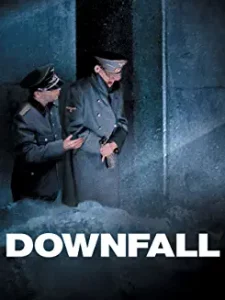 Downfall 2004
Downfall 2004
The last days of Hitler in his bunker, told through the eyes of Traudl Junge, a young girl chosen to be his secretary and on whose memoirs the story was based. Starring Bruno Ganz, the first German actor to portray Hitler, and capturing the claustrophobia of the bunker, and the craziness of the last days of Hitler’s dictatorship.
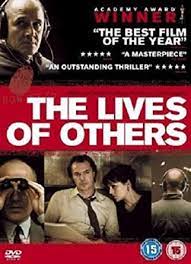 The Lives of Others 2006
The Lives of Others 2006
The story of a Stasi officer tasked with spying on a writer and his girlfriend who are suspected of disloyalty to the regime. Good on the atmosphere of life under the Stasi: flat-bugging, censorship, uncertainties about who to trust. Good too on the atmosphere and period detail. A worthy winner of the 2006 Oscar for the best foreign language film, described by Rotten Tomatoes as ‘an unforgettable masterpiece.’
English language films set in Berlin
1972 Cabaret
2015 Bridge of Spies
2017 Alone in Berlin
Listen to the Podcast
Links for this post
The Museum for Film and Television
The Filmpark Babelesberg
Programme for the Berlinale Festival
Visit Berlin website section on cinemas
The CinemaxX
The Odeon
The Kulturbrauerei
Open Air Cinema at Spandau
Last Updated on July 20, 2024 by Marian Jones
